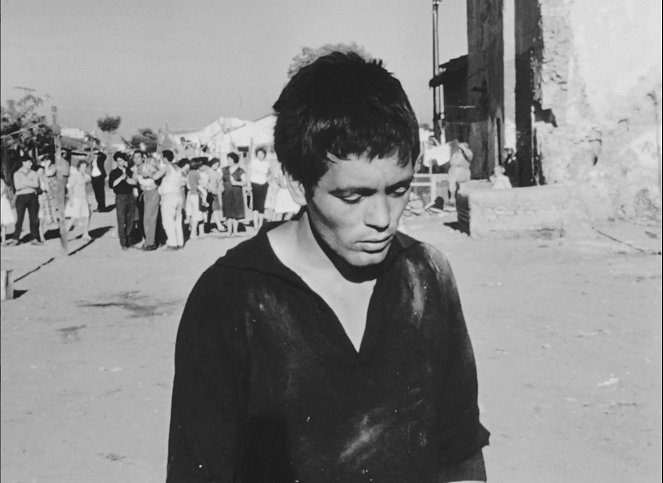Realização:
Pier Paolo PasoliniCâmara:
Tonino Delli ColliElenco:
Franco Citti, Silvana Corsini, Adriana Asti, Monica Vitti, Ferdinand Guillaume, Sergio Citti, Renato Terra, Piero Morgia, Luciano Conti, Mario Cipriani (mais)Conteúdos(1)
Vittorio (Franco Citti), conhecido como Accattone (calão para “pequeno meliante”), habita os subúrbios de Roma e leva uma vida marcada pelo ócio, como chulo, enquanto explora a namorada Maddalena (Silvana Corsini) e passa o tempo com os seus companheiros. Mas quando Maddalena é maltratada por elementos de um bando rival, por ter denunciado um dos seus, acaba na prisão e Accattone fica sem meio de subsistência. Logo encontra uma substituta na inocente Stella (Franca Pasut), que tenta arrastar para a vida da prostituição. Mas nem tudo vai correr como Accattone planeia. (Risi Film)
(mais)Críticas (2)
Regarding Accattone being Pier Paolo Pasolini's debut film, it is surprisingly mature and of high quality, showcasing Pasolini's great directorial talent. At the same time, it fully reveals the left-leaning direction of this filmmaker, which is evident in the depiction of the living conditions of his characters. The stumbling block, however, is Pasolini's approach to the film's characters, as the protagonist, a pimp, is portrayed as a somewhat boastful and frivolous young man, who is nevertheless difficult to feel sympathy towards. This ultimately leads to the tragic ending of the film. According to Pasolini, prostitution is primarily a result of social deprivation, which is somewhat oversimplified. Overall impression: 65%.
()
Together with the subsequent film Mamma Roma and his very first prose book "Ragazzi di vita" (1955), it is about Pasolini's contradictory view of the life of the Roman lumpenproletariat. By contradictory, I don't mean formally, but as life itself is contradictory (and as his life and work were too). The characters are both sincere and treacherous, their laziness is undeniable, and they rob others and each other, but they can also be generous like few "decent" people, and so on and so forth. It is as if they have preserved something childish within themselves (friendship, the desire for eternal holidays), which, while maintaining it into adulthood, proves incompatible with our society (at least with the "honorable" part). The characters suffer for it, it can be said partly rightfully so, but that does not mean that their lives are not too dearly redeemed. Pasolini lingers in these works over the fact that the victims of these people are greater than their sins.
()

